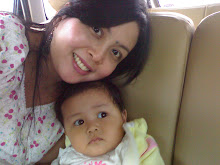| Breast Milk is the ideal food for human babies. It contains all the nutrients a baby needs, as well as helping to prevent most infections. When to start solids
Breast Milk is the ideal food for human babies. It contains all the nutrients a baby needs, as well as helping to prevent most infections. Most babies ready to start gradually weaning onto some sort of solids from about six months. Before four months of age the newborns digestive system is not developed enough to handle solids, also the natural sodium in some foods such as cereals, eggs and meat can place unnecessary stress on your baby’s kidneys.
Delaying the introduction of solids until around six months will also reduce the likelihood of developing allergies later on, particularly if there is a strong history of allergies in the family. First Foods
Choose a time when your baby is happy and relaxed to start offering solids; often just after a breast feed. Start with one food at a time. It should be smooth with no lumps and can be mixed with breast milk to make a gravy-like consistency so it is easy for baby to eat. Offer one teaspoon of smooth, runny, slightly warm solids once a day at first. There are different ideas about what type of food should be offered first; some health professionals prefer baby cereals whilst others recommend starting with fruits and vegetables First Foods can include • Commercially prepared baby cereals • Cooked and pureed vegetables. Root vegetables are best egg: kumara, pumpkin, carrot, potato, and taro. Do not add any salt or butter. • Pureed fruit egg: cooked apple, pear, ripe banana, peach, and apricot • Prepared canned baby foods. Do not add any sugar • Leafy vegetables such as silver beet and spinach are best left until after 12 months. Once your baby is eating a good variety of foods at around seven months you can introduce thicker purees with small soft lumps or mashed. New foods to start once baby is eating a good variety of first foods • Cooked meats; lamb, chicken, beef • Melon, pears, nectarine (no skin or pips) • Cooked vegetables; broccoli, taro, yams, watercress, curettes, green beans • Wheat and oatmeal infant cereals, whit toast, plain crackers, dusks Food Tips • Do it yourself – making you own purees is cost effective and easily done with a blender, food processor or mould. You can prepare bulk quantities and freeze in small amounts (freezing the puree in an ice block tray is ideal!). • Leave out salt, sugar and butter. • Avoid dairy products (cheese, yoghurt and custard) until around 8 – 9 months of age. • Avoid cow's milk and egg white until one year of age. • Make sure that the heated food is not too hot or it may burn babies mouth • If your baby refuses some foods, persevere as she may need to taste a new food five or six times before she will accept it. • If your baby continues to refuse a certain food, wait a while and then re-introduce it at a later date. • Don’t get too stressed over your baby's likes and dislikes, keep introducing new tastes and encourage her to eat a wide range of foods. |
STARTING SOLIDS
Labels: little treasures, mom and baby info
Subscribe to:
Post Comments (Atom)

No comments:
Post a Comment